Faculty Expertise on Coronavirus Pandemic
Jepson School faculty members have been examining the effects of the coronavirus pandemic on society. They are bringing their multi-disciplinary perspectives to bear on the leader-and-follower dynamics that are playing out in this crisis. Click on the links below to read some of their writings on this timely topic.
-
Dr. Donelson R. Forsyth
Dr. Don Forsyth, Professor, Colonel Leo K. & Gaylee Thorsness Endowed Chair in Ethical Leadership
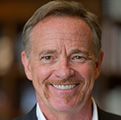
A social and personality psychologist, Dr. Donelson "Don" Forsyth studies groups, leadership, ethical thought, and moral judgment. In addition to his general interest in group processes and psychological aspects of moral judgments, he explores empirically the psychological and interpersonal consequences of success and failure at the group and individual level, individual differences in ethical ideology, and perceptions of leaders.
Loosening COVID-19 Restrictions May Ramp Up Social Anxiety
Protesting COVID-19 Quarantining: Mob Mentality or Groupthink?
Group-Level Resistance to Health Mandates during the COVID-19 Pandemic: A Groupthink ApproachMoral Relativists Resist Health Mandates during the COVID-19 Pandemic
Psychologist Still "Waiting on Data" to See Isolation’s Impact during Pandemic
-
Dr. Christopher R. von Rueden
Dr. Chris von Rueden, Associate Professor of Leadership Studies

Dr. Christopher von Rueden looks at leadership through the lens of cultural and evolutionary anthropology. An anthropologist with expertise in traditional human societies, his research focuses on how humans form status hierarchies, why we evolved to do so, and the demographic and ecological factors that cause our hierarchies to be more or less coercive. Relatedly, he studies the role of leader-follower relationships in the evolution of human cooperation.
Crises and Leader-Follower Behavior
April 17, 2020
When group members collectively experience a crisis, particularly existential threats, there are patterns to how they behave. Support for punishment of selfishness and rewarding of cooperativeness increases (e.g., see this article). This may be because of expectation of increased selfishness in others when times get tough or anticipation of greater costs and benefits for group success from selfishness and cooperativeness, respectively. For example, during normal times, selfishness may be irritating, but when one’s group is under attack, failure to cooperate can cost lives.
Endorsement of strong, authoritative leadership also increases during crises. Group members are more willing to trade off the risks of exploitation by a strong leader with the coordination and punishment/reward efficiency such a leader can bring--the fundamental tension in leader-follower relationships. This trade-off need not be consciously experienced. Rather, group members often simply feel greater respect for or commitment to their leaders, and greater antipathy towards those who don’t respect the leaders. Such feelings can motivate post-hoc rationalization of the rightness of their leaders’ decisions, a charity not as quickly afforded to leaders when crises aren’t happening.
Crisis-dependent shifts in follower psychology are evident cross-culturally, from small-scale traditional societies to states, particularly when groups are threatened by other groups (see this article). Think of support for executive power in the United States following 9-11. Threats from other groups are not limited to risk of war but also include risk of infectious disease. A recent study found people’s support for authoritarian leadership is correlated with infection risk, but only infection from diseases that can be transmitted from human to human (see this article). The uptick in President Trump’s poll numbers in the early stages of the coronavirus pandemic may be an example. The cross-cultural ubiquity and regularity of such follower behavior during crises suggests it is shaped by evolved, context-sensitive intuitions, rather than only or primarily by learned behavior.
For their part, individuals in a position to increase their authority as leaders during crises are motivated to more credibly signal their commitment to the group, such as through costly acts of altruism. They might receive more deference as a result of the crisis, but that deference is also contingent on the perception that leaders are benefiting the group. Relatedly, leaders may be especially keen during crises to come across as deontological in their decisions, rather than utilitarian (see this article). Since the uptick in deference to leaders is conditional on the crisis, leaders may also be motivated to prolong the crisis, like the eternal war in Orwell’s 1984. Or leaders may want to misrepresent, exaggerate, or instigate crises, as is common in political propaganda (see this article).
President Trump’s longstanding rhetoric regarding immigrants or liberal elites is suggestive of this. His poll numbers have declined since their height a month or so ago (see this article), and his April 17 call to arms on Twitter to defend the Second Amendment in three states, including Virginia, may be an attempt to increase his popularity, at least among his base.
-
Dr. Thad Williamson
Dr. Thad Williamson, Associate Professor of Leadership Studies and Philosophy, Politics, Economics and Law

Dr. Thad Williamson is a sought-after professor and civic activist. His research focuses on the intersection of theories of social justice and public policy, particularly as applied to urban politics and economic policy. A recognized community leader on poverty reduction efforts in Richmond, he writes regularly on current issues for a wide variety of popular and scholarly publications.
’Dramatic change will require leadership’: A message to the next generation of leaders
-
Dr. Kristin M. S. Bezio
Dr. Kristin M. S. Bezio, Associate Professor of Leadership Studies

Dr. Kristin M. S. Bezio integrates the study of literature into the leadership studies curriculum. Her areas of specialization include leadership in literature and film, leadership in performance, and cultural and political history in early modern England.
Shakespeare and Pandemic: COVID-19 Is and Isn’t Like the Plague in Shakespeare’s England
-
Dr. Jessica Flanigan
Dr. Jessica Flanigan, Associate Professor of Leadership Studies and Philosophy, Politics, Economics and Law; Richard L. Morrill Chair in Ethics & Democratic Values
A political philosopher, Dr. Jessica Flanigan teaches Leadership Ethics, Ethical Decision Making in Healthcare, and Critical Thinking. Her research addresses the ethics of public policy, medicine, and business.
-
Dr. Kenneth P. Ruscio
Dr. Kenneth P. Ruscio, Senior Distinguished Lecturer of Leadership Studies
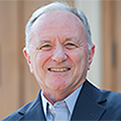
An expert on democratic theory and public policy, Dr. Kenneth P. Ruscio teaches courses focused on democracy, its history and principles, political leadership, and how these topics are used to interpret the current state of affairs in American democracy. He is the immediate past president of the Virginia Foundation for Independent Colleges, president emeritus of Washington and Lee University, and former dean of the Jepson School of Leadership Studies.
Leaders like Trump fail if they cannot speak the truth and earn trust
-
Dr. Gill Robinson Hickman
Dr. Gill Robinson Hickman, Professor Emeritus
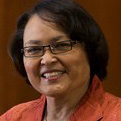
Dr. Gill Robinson Hickman’s expertise is in management, with an underpinning of organization theory, organization behavior, and human resource management. As an inaugural faculty member of the Jepson School, she participated in the early structuring and formation of the program. She is engaged in research in several areas, including invisible leadership (leadership of the common purpose), leadership during personal crisis, and leadership in socially active businesses. Hickman and University of Richmond associate professor of psychology Laura Knouse co-authored the book "When Leaders Face Personal Crisis," published in 2020. In the article linked below, they bring to bear research from that book project on the current COVID crisis.
-
Dr. Sandra J. Peart
Dr. Sandra J. Peart, Dean and E. Claiborne Robins Distinguished Professor in Leadership Studies, and President, Jepson Scholars Foundation
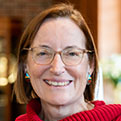
Dr. Sandra J. Peart is dean of the Jepson School of Leadership Studies, E. Claiborne Robins Distinguished Professor in Leadership Studies, and president of the Jepson Scholars Foundation. Her scholarship focuses on ethics and economics, leadership ethics, the history of economic thought, the history of political economy, and experimental economics.
The Underutilized Power of ’Externalities’--An Economist’s Take on Persuasive COVID-19 Communication
-
Dr. Crystal L. Hoyt
Dr. Crystal Hoyt, Professor of Leadership Studies and Psychology and Associate Dean for Academic Affairs, Colonel Leo K. & Gaylee Thorsness Endowed Chair in Ethical Leadership
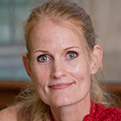
Dr. Crystal L. Hoyt is a social psychologist whose scholarship resides at the intersection of human belief systems and social justice. She explores the role of beliefs, such as mindsets, self-efficacy, stereotypes, and political ideologies, in the experiences and the perceptions of individuals with stigmatized social identities, such as women and minorities in leadership or STEM fields, the overweight, or sexual minorities.
COVID-19 exposes U.S.’ dire need for more working-class politicians on future ballots
Well-being in the time of COVID-19: Do metaphors and mindsets matter? -
Dr. Lauren N. Henley
Dr. Lauren Henley, assistant professor of leadership studies
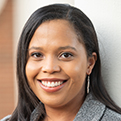
Dr. Lauren Henley is a historian whose research examines youthfulness, race, gender, religion, and crime in the late nineteenth and early twentieth centuries. In general, she considers how Black women and girls became both the victims of and perpetrators of violent crimes in the rural industrial South.
What It’s Like to Start Your First Faculty Job in a Pandemic